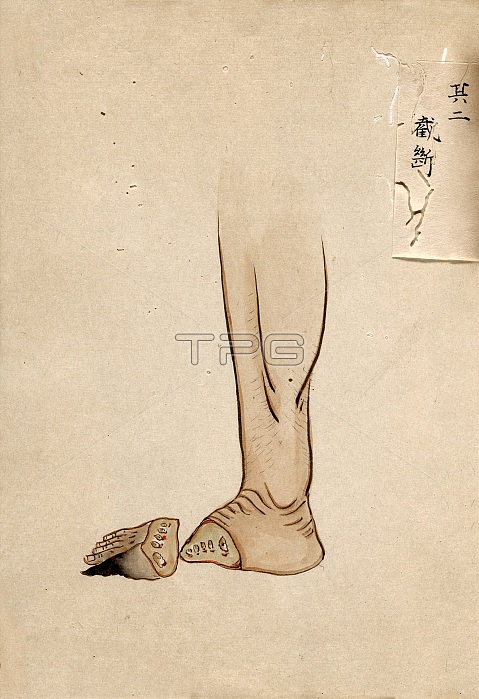
Gangrene amputation, 19th-century Japan. Illustration of the amputation of gangrenous toes, from 'A Surgical Casebook', a 19th-century manuscript of hand-painted pictures commissioned by Japanese surgeon Hanaoka Seishu (1760-1835). Gangrene often required amputation to prevent a fatal spread of the bacterial infection. Hanaoka pioneered the use of general anaesthesia to remove tumours from cancer patients. His book illustrated the cancers and other conditions that he treated, and the patients that came to him for treatment. The illustrations were by an artist named Tangetsu. For the pre-amputation toes, see C023/3399.
| px | px | dpi | = | cm | x | cm | = | MB |
Details
Creative#:
TOP14865236
Source:
達志影像
Authorization Type:
RM
Release Information:
須由TPG 完整授權
Model Release:
N/A
Property Release:
No
Right to Privacy:
No
Same folder images:

 Loading
Loading